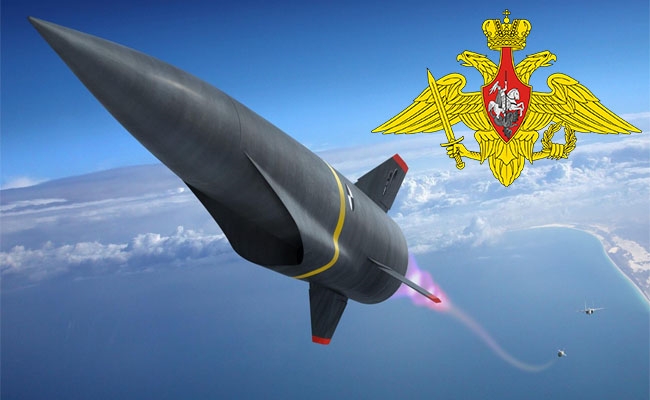Russia deploys its nuclear-capable Avangard hypersonic missiles
By MYBRANDBOOK

Russia's defence ministry has said that the county’s first regiment of Avangard hypersonic missiles has been put into service.
Although the exact location was not given, officials had earlier stated they would be deployed in the Urals. The nuclear-capable missiles are said to travel more than 20 times the speed of sound and put Russia ahead of other nations. They also have a "glide system" that affords great manoeuvrability and could make them impossible to defend against. Mounted on top of an intercontinental ballistic missile, the Avangard can carry a nuclear weapon of up to two megatons.
Defence Minister Sergei Shoigu confirmed the "Avangard hypersonic glide vehicle entered service at 10:00 Moscow time on 27 December", calling it a "landmark event".
President Vladimir Putin said that the Avangard system could penetrate current and future missile defence systems, adding: "Not a single country possesses hypersonic weapons, let alone continental-range hypersonic weapons."
The president unveiled the Avangard and other weapons systems in his annual state-of-the-nation address in March 2018, likening it to a "meteorite" and a "fireball".
In December 2018, the weapon hit a practice target 6,000km (3,700 miles) away in a test launch at Dombarovskiy missile base in the southern Ural Mountains.
After the test, Putin said that "The Avangard is invulnerable to intercept by any existing and prospective missile defence means of the potential adversary”.
Russia's defence ministry has released video of the Avangard system, but weapons experts have expressed scepticism about its effectiveness.
In a statement, the Pentagon said it. However, US Pentagon, while citing that it would "not characterize the Russian claims about the Avangard's capabilities”, says that it has its own hypersonic missile programme, as does China, which in 2014 said it had conducted a test flight of such as weapon.
On 26 November Russia allowed US experts to inspect the Avangard under the rules of the 2010 New START treaty, an agreement that seeks to reduce the number of strategic nuclear missile launchers. The New START accord, which expires in February 2021, is the last major nuclear arms control treaty between Russia and the US.


Legal Battle Over IT Act Intensifies Amid Musk’s India Plans
The outcome of the legal dispute between X Corp and the Indian government c...

Wipro inks 10-year deal with Phoenix Group's ReAssure UK worth
The agreement, executed through Wipro and its 100% subsidiary,...

Centre announces that DPDP Rules nearing Finalisation by April
The government seeks to refine the rules for robust data protection, ensuri...

Home Ministry cracks down on PoS agents in digital arrest scam
Digital arrest scams are a growing cybercrime where victims are coerced or ...


ICONS OF INDIA : SOM SATSANGI
With more than three decades in the IT Sector, Som is responsible for ...

Icons Of India : NATARAJAN CHANDRASEKARAN
Natarajan Chandrasekaran (Chandra) is the Chairman of Tata Sons, the h...

ICONS OF INDIA : RAMESH NATRAJAN
Ramesh Natarajan, CEO of Redington Limited, on overcoming ‘technolog...


EESL - Energy Efficiency Services Limited
EESL is uniquely positioned in India’s energy sector to address ener...

ECIL - Electronics Corporation of India Limited
ECIL is distinguished by its diverse technological capabilities and it...

BSE - Bombay Stock Exchange
The Bombay Stock Exchange (BSE) is one of India’s largest and oldest...


Indian Tech Talent Excelling The Tech World - RAVI KUMAR S, CEO- Cognizant
Ravi Kumar S, appointed as CEO of Cognizant in January 2023, sets the ...

Indian Tech Talent Excelling The Tech World - Anirudh Devgan , President, Cadence Design
Anirudh Devgan, the Global President and CEO of Cadence Design Systems...

Indian Tech Talent Excelling The Tech World - Thomas Kurian, CEO- Google Cloud
Thomas Kurian, the CEO of Google Cloud, has been instrumental in expan...
 of images belongs to the respective copyright holders
of images belongs to the respective copyright holders